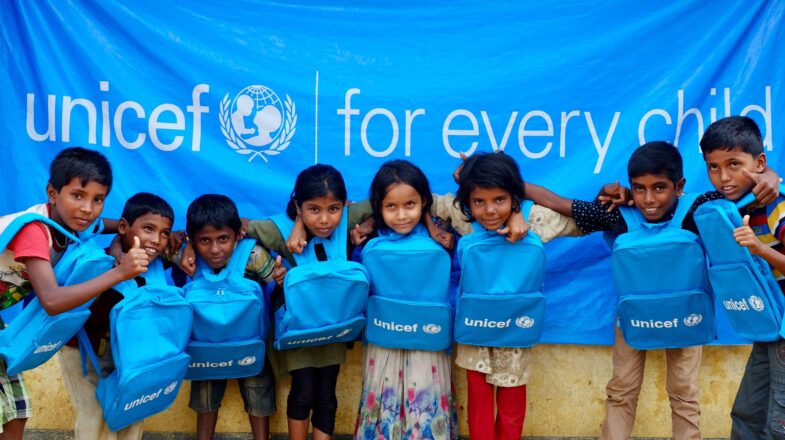UNICEF is a global social welfare organization that proactively collaborates with public partnerships across the world in an ongoing effort to support children, including ending exploitation and violence.
UNICEF Venture Funds is designed to pilot or promote scalable platforms that UNICEF can deploy in various countries to support the mission. The fund invests in companies including startups that have the potential to grow and improve the lives of children. Currently, the portfolio has invested in just over 70 companies.
UNICEF Innovation Funds and its partners typically make investments in the range of $50K to $100k in both nonprofit and for-profit early-stage blockchain technology startups that show the potential to utilize open-source technology solutions to promote a social goal of helping uplift humanity.
ethereum as seed investment to startups
Kenya, Argentina, India, Mexico, Rwanda, and Nepal along with seven other tech companies around the world have been designated to receive seed funding from UNICEF Venture Funds. Each firm can receive up to $100,000 in funding. Some of the companies interestingly have opted to receive a portion of the funding in ETH or cryptocurrency.
The majority of the startup recipients are working on decentralized decision-making tools, loans, and investment services for underserved communities. The tools developed by these companies will likely have compounding effects on education, social protection, and healthcare. The company recipients of funding have a vision for a better society and are working hard to bring about new digital transformations through their advanced tools.
The majority of the companies that will receive the funding are also female-led. By investing in female-led startups, UNICEF is supporting women entrepreneurs. The funding through UNICEF will indirectly help women thrive as successful entrepreneurs as well as benefit society.
UNICEF Ventures Lead Sunita Grote said “Supporting female-led companies is ‘smart investing’ and more important than ever as we accelerate our efforts to support underrepresented communities. We’re thrilled that this new cohort of investments is composed of a strong group of companies, of which the majority are female-led.”
female led startups to receive unicef funding
Xcapit, an Argentine firm, is working on gamified savings software for lower and middle–class households. The program offers convenient access to financial services, allowing them to improve their financial status.
Somish Blockchain Labs, an Indian firm, is developing a decentralized governance protocol (dApps). GovBlocks is a software that essentially creates decision-making structures for Decentralized Autonomous Organizations (DAOs) and enables the investigation of how communities might be involved in decision-making.
Mexico’s BX Smart Labs is working on a decentralized tool for saving circles. BX Smart Labs allow people to borrow and save money even if they don’t have access to standard banking or credit card accounts.
A Rwandan firm, Leaf Global Fintech, is working on a low-tech alternative to interact with banks without the internet.
Rumsan, a Nepalese startup, is working on a Digital Cash and Voucher Assistance (CVA) management system. It would leverage mobile-based blockchain tokens to provide speedier financial transfers to recipients, even in the most remote locations.
A digital token platform is being developed by Grassroots Economics, a Kenyan startup. It’s an open-source pan-African response and recovery assistance platform that lets aid workers and vulnerable communities receive funds digitally, create and exchange digital tokens, track KPIs remotely, and communicate about risks.
Another Kenyan startup, KotaniPay, is working on a platform for transfers/remittances, deposits, withdrawals, loans, and payments. It acts as a frictionless link between cryptocurrencies and fiat currencies, allowing users to access the blockchain using U.S. dollars.
In summary, the world is facing a myriad of problems that directly affect children. As the pandemic continues, so too has the widening of the gap between rich and poor families, and the increasing toll on the children of the world. To address the widening gap of rich verse poor, rapid uneven urbanization, and climate change, UNICEF is seeking to employ innovative partnerships and technology including blockchain. To accomplish the mission of helping children and lifting humanity, UNICEF is not afraid to employ public partnerships and innovation including blockchain to accomplish the goal.
https://fin-techadvocate.com/
https://www.bankingadvocate.com/
https://www.stephengandrews.com/

